Vauxhall Astra vs VW Passat - Differences and prices compared
Compare performance (225 HP vs 272 HP), boot space and price (25200 £ vs 36500 £ ) at a glance. Find out which car is the better choice for you – Vauxhall Astra or VW Passat?
Costs and Efficiency:
Price and efficiency are often the first things buyers look at. Here it becomes clear which model has the long-term edge – whether at the pump, the plug, or in purchase price.
Vauxhall Astra has a clearly advantage in terms of price – it starts at 25200 £ , while the VW Passat costs 36500 £ . That’s a price difference of around 11271 £.
Fuel consumption also shows a difference: VW Passat manages with 1.20 L and is therefore significantly more efficient than the Vauxhall Astra with 2.20 L. The difference is about 1 L per 100 km.
As for electric range, the Vauxhall Astra performs significantly better – achieving up to 419 km, about 284 km more than the VW Passat.
Engine and Performance:
Power, torque and acceleration say a lot about how a car feels on the road. This is where you see which model delivers more driving dynamics.
When it comes to engine power, the VW Passat has a slightly edge – offering 272 HP compared to 225 HP. That’s roughly 47 HP more horsepower.
In acceleration from 0 to 100 km/h, the VW Passat is evident quicker – completing the sprint in 5.80 s, while the Vauxhall Astra takes 7.50 s. That’s about 1.70 s faster.
In terms of top speed, the VW Passat performs minimal better – reaching 250 km/h, while the Vauxhall Astra tops out at 235 km/h. The difference is around 15 km/h.
There’s also a difference in torque: VW Passat pulls minimal stronger with 400 Nm compared to 360 Nm. That’s about 40 Nm difference.
Space and Everyday Use:
Cabin size, boot volume and payload all play a role in everyday practicality. Here, comfort and flexibility make the difference.
Both vehicles offer seating for 5 people.
In curb weight, Vauxhall Astra is to a small extent lighter – 1341 kg compared to 1573 kg. The difference is around 232 kg.
In terms of boot space, the VW Passat offers clearly perceptible more room – 690 L compared to 422 L. That’s a difference of about 268 L.
In maximum load capacity, the VW Passat performs clearly perceptible better – up to 1920 L, which is about 581 L more than the Vauxhall Astra.
When it comes to payload, VW Passat to a small extent takes the win – 577 kg compared to 509 kg. That’s a difference of about 68 kg.
Who wins the race in the data check?
The Vauxhall Astra has only a minor advantage in the objective data comparison.
This result only shows which model scores more points on paper – not which of the two cars feels right for you.
Costs and Consumption
View detailed analysis
Engine and Performance
View detailed analysis
Dimensions and Body
View detailed analysis
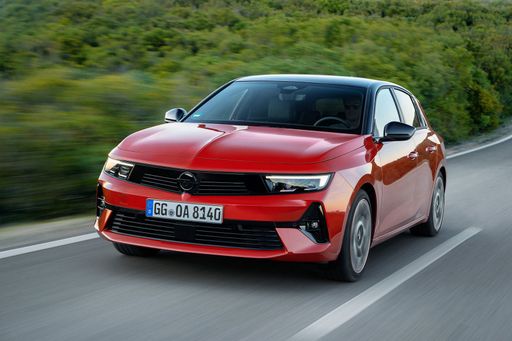
Vauxhall Astra
Vauxhall Astra
The Opel Astra strikes a neat balance between everyday practicality and engaging handling, so the daily grind suddenly feels a bit less dull. Inside it's intelligently packaged with modern kit and comfortable seating, making it a very sensible pick for buyers who want a dependable hatchback that doesn't take itself too seriously.
details

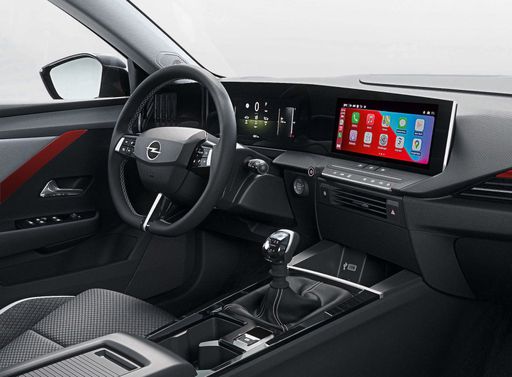
VW Passat
The VW Passat is the grown-up family car that gets the basics absolutely right — roomy, comfortable and built to handle weekday commutes and weekend getaways without fuss. It won't set your pulse racing, but its calm composure and sensible packaging make it boring in the best possible way: a dependable, no‑drama choice for buyers who value practicality over flash.
details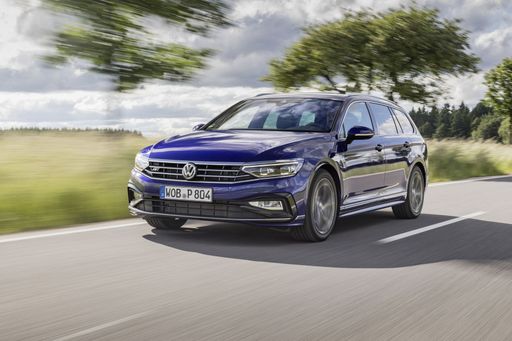
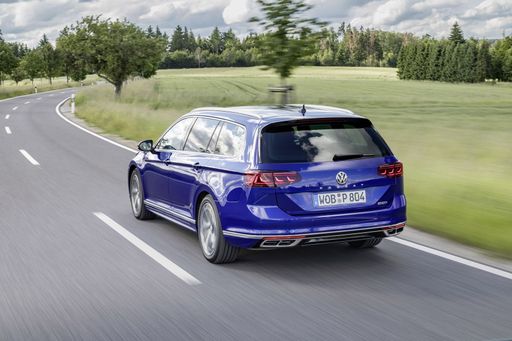
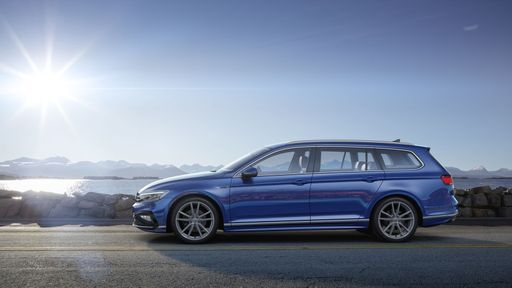
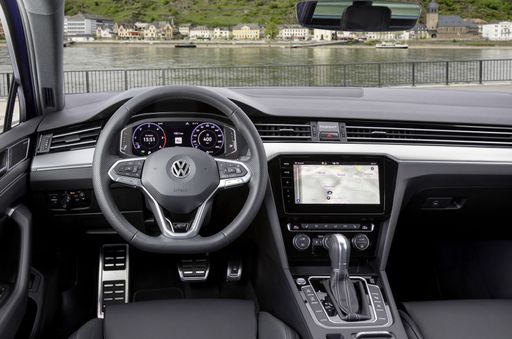
Costs and Consumption |
|
|---|---|
|
Price
25200 - 40500 £
|
Price
36500 - 58500 £
|
|
Consumption L/100km
2.2 - 6 L
|
Consumption L/100km
1.2 - 8 L
|
|
Consumption kWh/100km
15.40 kWh
|
Consumption kWh/100km
-
|
|
Electric Range
82 - 419 km
|
Electric Range
124 - 135 km
|
|
Battery Capacity
51 kWh
|
Battery Capacity
19.70 kWh
|
|
co2
0 - 135 g/km
|
co2
28 - 181 g/km
|
|
Fuel tank capacity
42 - 52 L
|
Fuel tank capacity
45 - 66 L
|
Dimensions and Body |
|
|---|---|
|
Body Type
Hatchback
|
Body Type
Estate
|
|
Seats
5
|
Seats
5
|
|
Doors
5
|
Doors
5
|
|
Curb weight
1341 - 1736 kg
|
Curb weight
1573 - 1858 kg
|
|
Trunk capacity
352 - 422 L
|
Trunk capacity
510 - 690 L
|
|
Length
4374 mm
|
Length
4917 mm
|
|
Width
1860 mm
|
Width
1849 mm
|
|
Height
1432 - 1488 mm
|
Height
1521 mm
|
|
Max trunk capacity
1268 - 1339 L
|
Max trunk capacity
1770 - 1920 L
|
|
Payload
414 - 509 kg
|
Payload
501 - 577 kg
|
Engine and Performance |
|
|---|---|
|
Engine Type
Petrol, Diesel, Electric, Petrol MHEV, Plugin Hybrid
|
Engine Type
Petrol, Petrol MHEV, Diesel, Plugin Hybrid
|
|
Transmission
Manuel, Automatic
|
Transmission
Automatic
|
|
Transmission Detail
Manual Gearbox, Automatic Gearbox, Reduction Gearbox, Dual-Clutch Automatic
|
Transmission Detail
Dual-Clutch Automatic
|
|
Drive Type
Front-Wheel Drive
|
Drive Type
All-Wheel Drive, Front-Wheel Drive
|
|
Power HP
130 - 225 HP
|
Power HP
122 - 272 HP
|
|
Acceleration 0-100km/h
7.5 - 10.6 s
|
Acceleration 0-100km/h
5.8 - 10.7 s
|
|
Max Speed
170 - 235 km/h
|
Max Speed
212 - 250 km/h
|
|
Torque
230 - 360 Nm
|
Torque
250 - 400 Nm
|
|
Number of Cylinders
3 - 4
|
Number of Cylinders
4
|
|
Power kW
96 - 165 kW
|
Power kW
90 - 200 kW
|
|
Engine capacity
1199 - 1598 cm3
|
Engine capacity
1498 - 1984 cm3
|
General |
|
|---|---|
|
Model Year
2023 - 2025
|
Model Year
2024 - 2025
|
|
CO2 Efficiency Class
D, A, C, B
|
CO2 Efficiency Class
G, D, E, B
|
|
Brand
Vauxhall
|
Brand
VW
|
What drive types are available for the Vauxhall Astra?
Available configurations include Front-Wheel Drive.




